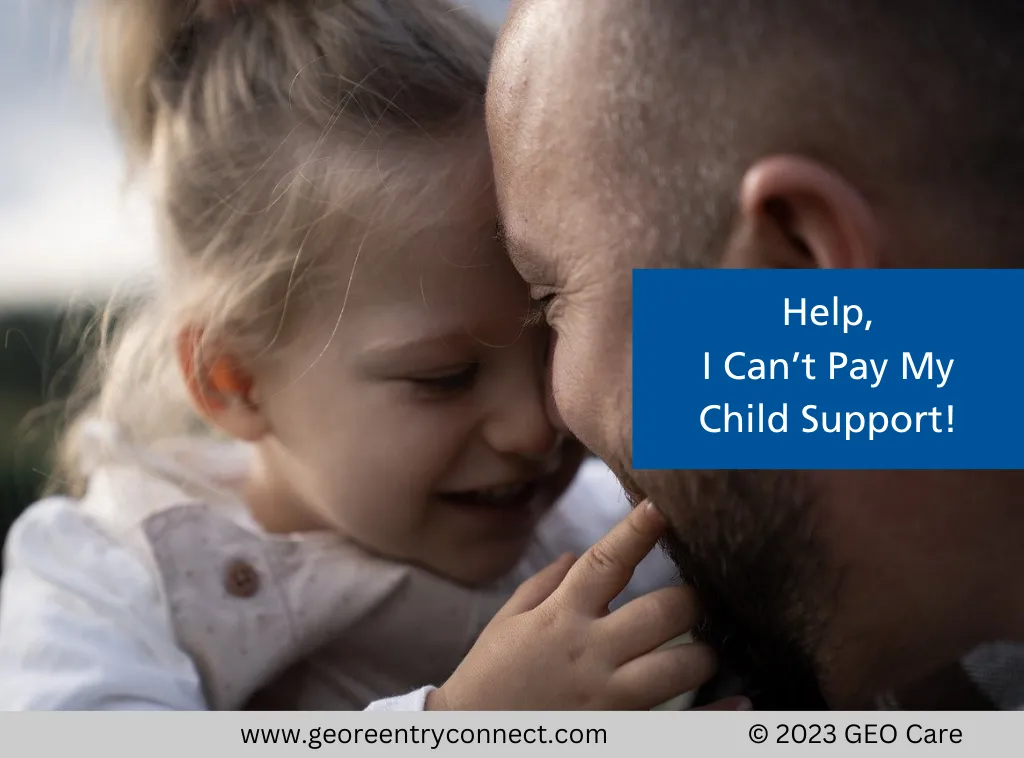As you move on to a new chapter, you may face legal challenges. Legal aid can help you rebuild your life and confidently handle any legal matters. Below, we highlight five areas impacting individuals post-incarceration.
Child Support Matters
If you owe child support payments, but can’t afford to pay them, legal aid can help you find ways to modify the payment amount or set up a payment plan you can afford. This way, you can support your children and build stronger family ties.

- Local legal aid organizations: Many legal aid organizations offer free or sliding-scale fee income-based services. Search our resource map, and contact organizations in your area to inquire about child support assistance.
- State bar associations: Some state bar associations have pro bono programs where attorneys provide free legal assistance to individuals who cannot afford representation. Explore these programs to find attorneys experienced in family law matters.
- Child support enforcement agencies: Many states have child support enforcement agencies that can help you navigate child support issues. These agencies provide information on payment options, modifications, and enforcement, ensuring that reentrants fulfill their financial responsibilities towards their children. Click here to find your local agency.
Expungement & Record Sealing
A criminal record may make it hard to find jobs and housing. Legal aid can help remove or conceal your past criminal records through expungement or record sealing, increasing your chances of a fresh start. Learn more about expungement information in your state.
- Public defender’s office: Reentrants who cannot afford an attorney may be eligible for free legal representation for expungement or sealing cases through your local Office of the Public Defender.
- Nonprofit legal organizations: Several nonprofit organizations focus on criminal justice and reentry issues, providing free or low-cost assistance with expungement and record sealing. Online searches or local community centers may provide information on such organizations.
- Law school clinics: Law schools often run clinics that provide free legal assistance to individuals seeking expungement or record sealing. These clinics are often supervised by experienced attorneys, offering a cost-effective solution.
Housing Advocacy
Finding a place to live post-incarceration can be challenging due to housing discrimination. Legal aid can help you fight against unfair treatment and better understand your tenant rights.
- Fair housing organizations: Local fair housing organizations may offer free legal assistance to individuals experiencing housing discrimination. Reentrants can contact these organizations to report discriminatory practices and seek help.
- Housing rights clinics: Some legal aid organizations and law schools operate housing rights clinics that provide free or low-cost legal assistance to individuals facing housing issues, including returning citizens.
- Legal hotlines: Several cities and states offer legal hotlines that provide advice and referrals for housing-related legal issues. Reentrants can call these hotlines to connect to appropriate resources at little to no cost.

Employment Rights
You may also face discrimination when looking for work due to your criminal record. Legal aid can help protect your rights, enabling you to find a job and build a career.
- Equal Employment Opportunity Commission (EEOC): Individuals with a criminal record can file a complaint with the EEOC for free if they believe they have experienced discrimination during the hiring process or at work. Learn more about how to file a complaint.
- Employment rights clinics: Legal aid organizations and law schools often run employment rights clinics that offer free or low-cost guidance and representation to individuals facing workplace discrimination.
- Workforce development centers: Local workforce development centers often have reentry services and resources to assist with employment-related legal issues at little to no cost.
Access to Public Benefits
If you need healthcare and food assistance benefits, legal aid can guide you through the application process and ensure these basic needs are met.
- Social services agencies: Local social services agencies administer public benefit programs. Reentrants can visit or contact these agencies to apply for benefits and get free assistance with the application process. Search by state.
- Community-based organizations: Nonprofit organizations and community centers sometimes provide application assistance and guidance for accessing public benefits at no cost.
- Legal aid websites: Several legal aid organizations have websites with resources and guides on how to access public benefits. Reentrants can explore these online platforms for free information specific to their state or region.
How to Find Free & Low-cost Resources Now
GEO Reentry Connect is here if you need help finding legal aid resources. Our easy-to-use map has more than 26,000 social service resources.
- Go to the Resource Map
- Enter your ZIP, city, or address
- Select “Legal/Financial” category
- Click “search”
You will find legal aid resources within 10 miles of you. To expand your search, click the distance drop-down.
Our website offers valuable assistance beyond legal aid, including educational opportunities, job training programs, financial aid resources, and more.
